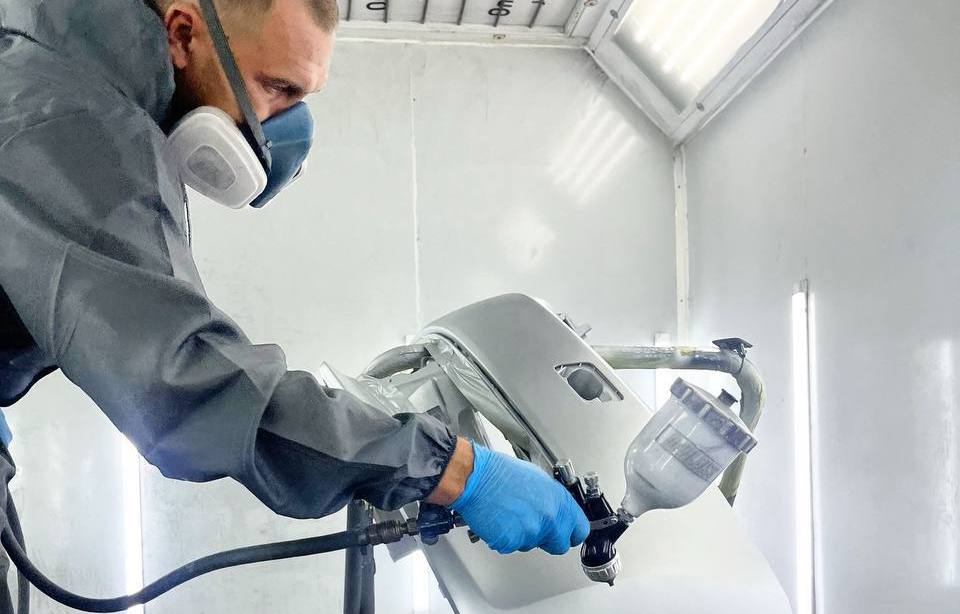Diesel engines are reliable and durable, but only if they are properly maintained. Despite their simplicity, diesel engines have their own characteristics and requirements that must be taken into account during operation. In this article, we will cover everything there is to know about diesel engine maintenance.
Features of diesel engines
The first thing you need to know about the operation of a diesel engine is its features. Diesel engines operate on the principle of compressing air and fuel, which is different from gasoline engines, which operate on a spark. This means that diesel engines have higher cylinder pressures, requiring a more robust design.
Another feature of diesel engines is that they have higher torque at low engine speeds, which allows them to use fuel energy efficiently. However, diesel engines may have higher noise and vibration levels than gasoline engines.
Operational Requirements
In order for a diesel engine to operate reliably and efficiently, certain operating requirements must be met. One of the main requirements is the use of the correct fuel. Diesel engines run on diesel fuel, which must meet certain quality standards. The use of low quality fuel can damage the engine.
In addition, it is necessary to monitor the oil level in the engine and change it regularly. The oil in diesel engines is under greater stress than in gasoline engines, so regular oil changes are especially important.
Refueling and service
Diesel engines require proper fueling and service. Refueling of diesel fuel should be carried out only at special gas stations in order to exclude the possibility of water or other impurities entering the fuel system. Poor quality fuel can lead to clogged filters and engine failure.
Service interval
The maintenance interval for a diesel engine depends on its specific model and operating conditions. However, it is usually recommended to inspect the engine every 5-7 thousand kilometers. During the inspection, it is necessary to check the condition of the filters, the level of oil and coolant. It is also necessary to regularly change the oil and filters of air, fuel and oil.
Diesel engine maintenance
In order for the diesel engine to work without failures, it is necessary to monitor its condition daily. For example, if there is noise during engine operation, this may indicate a malfunction in the fuel injection system or crankshaft bearings. If the engine loses power, it may be due to clogged filters or a malfunctioning fuel injection system.
Diesel engine problems
Consider some typical malfunctions of diesel engines and how to fix them.
- Timing belt breaks
This problem may be due to the poor quality of the belt or its size mismatch. To avoid this problem, it is recommended to buy belts only from trusted suppliers and check their size before installation.
- Failures in the supply of diesel fuel
This problem may be due to clogged fuel filters or a faulty high pressure pump. To solve this problem, it is necessary to replace the filters and check the pump for a malfunction.
- Indicator error
If an error appears on the dashboard, it may be due to a sensor malfunction or an electrical circuit problem. To eliminate this problem, it is necessary to check the sensor and diagnose the electrical circuit.
- Idling problems
If the engine does not run smoothly at idle, this may be due to a malfunction in the fuel injection system or clogged filters. To eliminate this problem, it is necessary to check the fuel injection system and replace the filters.
- Additional filters
Additional filters can be installed to protect the diesel engine from clogging. For example, you can install a fuel inlet filter or an oil filter. This will help increase the life of the engine and reduce the risk of malfunctions.
- Danger of water hammer
Water hammer can occur when the fuel system is clogged or when low-quality fuel is used. To prevent this problem, it is necessary to monitor the quality of the fuel and change the filters regularly.
- Wear masking
In order to maximize the life of a diesel engine, special oil additives can be used. They help reduce wear on engine parts and increase engine life.
- Conclusion
Maintenance of a diesel engine is a key factor for its reliable operation and extended service life. It is important to monitor the quality of the fuel, periodically change the oil and filters, and check the condition of the engine for malfunctions. If you find any malfunction, you must immediately take measures to eliminate it. This will avoid serious breakdowns and costly repairs in the future.




































 Request a Call
Request a Call  Plot Route
Plot Route  Reviews on Google
Reviews on Google 
